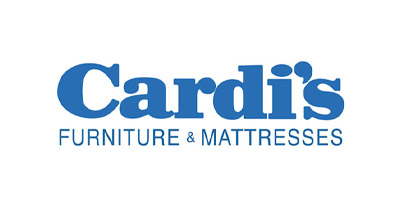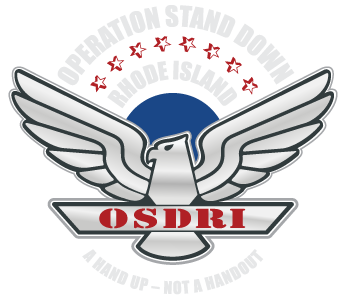VA Disability
Rating Evaluation Statement
Mental Health Rating Criteria
This is your opportunity to tell the VA how your mental health condition, including PTSD, affects you today. The VA assigns a rating for mental health conditions based upon how much your symptoms affect you at work (occupational impairment) and interacting with other people (social impairment).
Orthopedic Conditions Rating Criteria
Disabilities of the musculoskeletal system are rated based upon how much the condition affects your ability to perform “normal working movements.” You may be entitled to multiple ratings for the same service-connected condition, depending on whether your symptoms involve separate and distinct functions such as (1) muscle damage, (2) nerve damage, (3) scarring, and/or (4) limitation of motion in one or more joints.
Nerve Conditions Rating Criteria
Peripheral nerves are rated based on (a) loss or weakness of muscle (b) loss of sensation (your ability to feel pain, heat, or cold), and (c) loss of reflexes, and how significantly these symptoms interfere with the body part’s overall ability to function.
Diabetes Rating Criteria
In order to receive a compensable rating for diabetes, you must show at least one of the following:
- Your diabetes is manageable by a restricted diet;
- Your diabetes requires insulin or an oral hypoglycemic agent;
- Your diabetes also requires regulation of activities – it is medically necessary to avoid strenuous activities; or
- You have experienced episodes of ketoacidosis or hypoglycemic reactions (low blood sugar) that have required one or two hospitalizations per year or twice a month visits to a diabetic care provider.
Digestive or Gastrointestinal Conditions Rating Criteria
Digestive or gastrointestinal conditions are rated based upon how much they impact your overall health.
- 60% Symptoms – very severe symptoms suggestive of severe impairment in overall health, including: severe pain, vomiting, weight loss, moderate anemia, possibly blood in stool, or other symptoms that significantly interfere with your day-to-day life
- 30% Symptoms – less severe symptoms suggestive of a considerable impairment in overall health, including: persistently recurrent epigastric distress (constant acid reflux) but your symptoms can be controlled by medication, pain in your arms or shoulders, or other symptoms that cause a considerable interference with your day-to-day life
- 10% Symptoms – same symptoms as 30% but not as frequent or severe (ie. you have epigastric distress but it’s not persistent, it only happens once a month)
Headaches Rating Criteria
In order to receive a compensable rating for your migraines, we need to show (a) how often your migraines occur, and (b) how severe they are, along with (c) how your migraines affect your ability to work and function. In order to receive a compensable rating for your migraines, we need to show the VA that your migraines are “prostrating.”
“Prostrating” – The term “prostrating” means that you must cease all activity and self-isolate for the remainder of the day or take medication/seek immediate medical attention. You are unable to perform any occupational or daily activities either because of the migraine itself or because of the migraine medication (ie. the medication makes you too drowsy, you cannot operate heavy machinery, etc.).
|
Frequency |
Rating |
|
2 or more times per month |
50% |
|
Once a month |
30% |
|
Once every 2 months |
10% |
|
Once every 3 months or less |
0% |
Respiratory Conditions Rating Criteria
Respiratory conditions are rated based on (a) how often you experience asthma attacks and (b) the type of medication required for your condition (oral or injected medications including steroids such as prednisone or the use of inhalers or bronchodilators).
Urinary Conditions Rating Criteria
Urinary conditions are rated based upon how frequent or infrequent (voiding) you are able to urinate:
- Requires the use of a catheter or other urinary assistive appliance, or requires the use of absorbency underwear (like pads or depends) that must be changed more than 4 times a day – 60%
- Urinate 5+ times during the night, or if you have to urinate more than every hour during the day – 40%
- Urinate 3 or 4 times during the night, or if you have to urinate every 1 to 2 hours during the day – 20%
- Urinate 2 times during the night, or if you have to urinate every 2 to 3 hours during the day – 10%
Skin Conditions Rating Criteria
Skin conditions are rated based upon the size of the affected condition and whether it is painful to touch.
Unemployability
If you are unable to obtain or maintain substantially gainful employment because of one or more of your service connected conditions, you may qualify for Total Disability Based Upon Individual Unemployability (TDIU). While TDIU is an “implied” claim, meaning the VA should consider this as part of a claim for an increase where there is evidence of difficulty maintaining employment in the record. If this applies to you, you should complete and submit Veteran’s Application for Increased Compensation Based on Unemployability (VA Form 21-8940).
Special Monthly Compensation
Special Monthly Compensation (SMC) is a form of supplemental compensation given for some especially serious or otherwise debilitating conditions.
SMC is an “implied claim.” This means that the VA should automatically award SMC if you qualify. You do not have to directly apply for Special Monthly Compensation (SMC).
- SMC(k) Loss of Use of a Creative Organ – if your service connected condition makes another body part unable to function any better than it would if it were amputated and a prosthetic device used, you may be eligible for supplemental compensation from the VA. Many service connected conditions require medications that may cause erectile dysfunction, a condition subject to supplemental compensation under SMC(k).
- SMC(l) Aid & Attendance– if your service connected conditions are so severe that you require regular supervision by another person, you may be eligible for supplemental compensation from the VA. You may ask someone to complete an Examination for Housebound Status or Permanent Need for Regular Aid and Attendance (VA Form 21-2680) or A Request for Nursing Home Information in Connection with Claim for Aid and Attendance (VA Form 21-0779) to submit as evidence of the need for regular Aid & Attendance.
Download VA Form 21-2680 (PDF) – family member or home nurse
Download VA Form 21-0779 (PDF) – nursing home facility
- SMC(s) Housebound or 160% + – if your service connected conditions are so severe that you are permanently bedridden, you may be eligible for supplemental compensation from the VA. If you have one or more service connected conditions that add up to 100% combined (including TDIU), and additional service connected conditions that add up to 60%, you may be eligible for supplemental compensation from the VA. The additional disability or disabilities evaluated as 60% or more disabling, must be separate and distinct from the single disability evaluated as totally disabling, and involve separate anatomical segments or body systems.
- SMC(t) Traumatic Brain Injury – if you have chronic symptoms caused by a traumatic brain injury (TBI), you may be eligible for supplemental compensation from the VA if you require Aid & Attendance (as described above), and you would need constant institutional care without in-home Aid & Attendance.
If any of these conditions apply to your situation and you are not receiving special monthly compensation, or you are not sure if you are eligible for special monthly compensation, contact us for more information.
Convalescence
The VA will award a temporary 100% rating evaluation if you undergo surgery for one or more of your service-connected conditions that requires you to take time out of work to recover from the surgery. You may qualify for convalescence if:
- you spent more than 21 days in a VA hospital or you were under hospital observation or other approved hospital for a service-connected condition; or
- you had surgery to treat a service-connected condition that required a recovery time of at least 1 month and the surgery resulted in severe issues, such as:
- surgical wounds that haven’t totally healed,
- stumps or recent amputations,
- being unable to move due to being put in splints or casts,
- being unable to leave your house, or
- having to use a wheelchair or crutches; or
- you did not have surgery, but one or more major joints was immobilized by a cast.
This temporary 100% rating may continue for 1 to 3 months – depending on the surgery. You may be able to extend this period of convalescence an additional 3 months if you require additional time out of work to recover. If you believe you may be eligible for convalescence, contact us for more information.
OSDRI VA Disability Benefits & Services
















